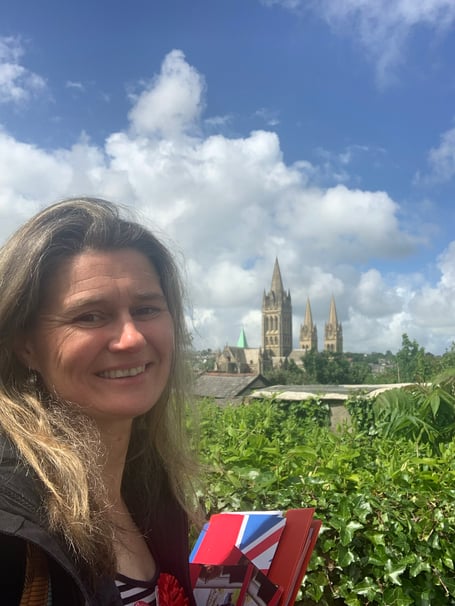PEOPLE come miles to visit our beautiful beaches and dramatic coastline, stay in our hotels, B&Bs and holiday lets, drink in our pubs, and eat in our array of brilliant cafes and restaurants. Tourism provides 15 per cent of Cornwall’s economy while 'tourism and hospitality' accounts for one in five jobs in the Duchy and well over 90 per cent of our visitors come from within the UK.
However, this reliance on what is often still a seasonal sector, can make us vulnerable. After the post-COVID boom, Cornwall really suffered and by summer 2024 Tim Jones, chairman of South West Business Council, argued that tourism in the South West, was at its lowest for 10 years. I have spoken to many small business owners, and I know that some of them have been struggling. Rising costs, high energy bills, staff shortages and pandemic debts have forced some to close or to consider doing so. The businesses themselves are often family-run, small, close-knit, and centres of their communities, so their loss is felt greatly.
This government has taken some steps to support hospitality. I served on the Committee for the Non-Domestic Rating Bill last year and I welcomed the provisions to introduce permanently lower business rates for most retail, hospitality, and leisure properties from next year.
I look forward to the launch of the government’s holiday let registration scheme later this year. If that includes registration of safety check documents and, potentially, inspection, it will ensure safety and quality standards, levelling the playing field between hotels, B&Bs and Airbnb style short-term lets and show us where the gluts of holiday let properties are. There are more holiday lets and second homes in Cornwall than there are people on the housing waiting list at present. Measures on second homes and the government’s huge £39-million investment into building more council and affordable homes on stuck sites, such as the Pydar development, are welcome.
Many jobs in hospitality are insecure. The government’s new commitment to end zero-hours contracts if—crucially—the employee does not want them, will help. Cornwall has been awarded accreditation as a living wage place, and many firms are very proud of that. The rises in the minimum wage over the years, along with the increase in training needs after the pandemic, have made life difficult for hospitality businesses, but they recognise that paying good wages is crucial for the retention of staff.
The potential of a tourism tax—how it could be levied and collected in a way that was not detrimental to our hotels, B&Bs and holiday parks, and that would encompass direct booking websites – is being discussed again. The continuation of funding for local visitor economy partnership programmes, such as Visit Cornwall and the Tourism Industry Council, is also important to enable our hospitality sector to market itself at home and abroad.
Our hospitality sector in Cornwall does and can thrive, but it needs the right conditions and support to do so.





Comments
This article has no comments yet. Be the first to leave a comment.